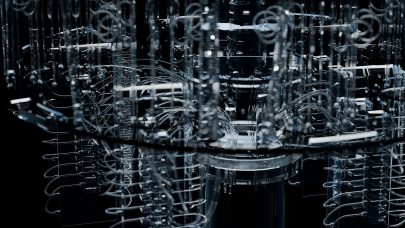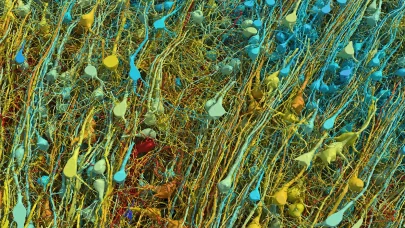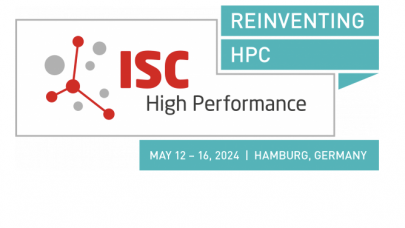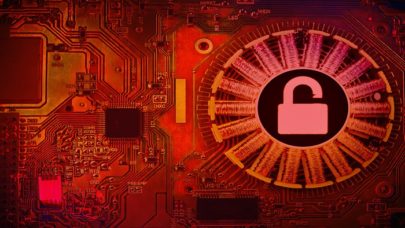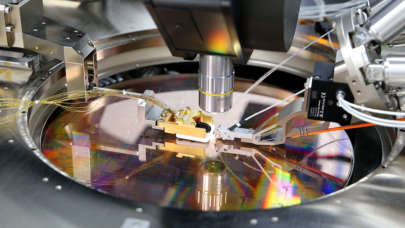PALO ALTO, Calif., May 21, 2020 – NTT Research, Inc., a division of NTT, announced that it has named Joe Alexander, M.D., Ph.D., as Distinguished Scientist in its Medical and Health Informatics (MEI) Lab. Dr. Alexander, who is also a Fellow of the American College of Cardiology, joined NTT Research in February 2020, after 18 years with Pfizer, Inc., where he most recently served as senior medical director, global medical affairs. He also worked for two years at Merck, Inc., and spent eight years at Vanderbilt University, where he completed a two-year residency in internal medicine and served as a professor of medicine and biomedical engineering. Dr. Alexander obtained his M.D. and Ph.D. (biomedical engineering) degrees at the Johns Hopkins Medical School. His post graduate training included fellowships at Albert Einstein College of Medicine in the Bronx and Kyushu University in Fukuoka, Japan. At NTT Research, he will lead the MEI Lab’s bio digital twin initiative.

“We are delighted to have Dr. Alexander as a permanent member on our research team,” said Professor Hitonobu Tomoike, M.D., Ph.D. “His academic and medical background, persistent work in data analysis and experience in the life sciences and pharmaceutical industry make him a perfect fit for helping us to achieve our exciting and ambitious goals at the MEI Lab.”
Under the direction of Dr. Tomoike, a cardiovascular medical scientist, the MEI Lab is targeting three fields: nano- or micro-scale sensors, in collaboration with the Technical University of Munich (TUM); innovative applications of artificial intelligence (AI) and analytics to digitized medical information; and precision medicine, which enables better distinctions between effective and ineffective treatments. Taken together, these components are prerequisites to the MEI Lab’s futuristic goal of leveraging the digital world and big data to predict the effect of treatment on individual patients via alter egos, or bio digital twins. The hoped-for outcome is more precise and finely tuned treatments.
“This is a tremendous opportunity to expand many of my interests and areas of expertise, including my long-standing work in medical data analysis and knowledge of cardiovascular dynamics,” said Dr. Alexander. “I am especially thrilled at having a five-to-ten year research horizon and look forward to leading the bio digital twin initiative, which I believe will evolve in three stages: first, an initial cardiovascular model focused on acute care; next, a more sophisticated dynamic model incorporating multiple systems and more suited for chronic care; and finally, a third-generation model associated with wellness in general.”
At Pfizer, Dr. Alexander served in various roles, including cardiovascular medical affairs, worldwide clinical imaging and measurement technologies, medical devices and pulmonary hypertension. In his most recent position, he created a virtual lab using advanced analytics and modeling methods connecting disparate data types in order to predict responders and non-responders to a market-leading drug. Over his tenure at Pfizer, Dr. Alexander each year took opportunities to conduct additional modeling and simulation research. Besides research on non-invasive glucose monitoring and methods better than QT prolongation for predicting serious arrhythmias, two other areas of Dr. Alexander’s research, conducted in collaboration with Argonne National Laboratory, involved the use of simulation to support management of neuropathic pain, and modeling based on CT scans for primary pulmonary hypertension. Dr. Alexander is the author or co-author of 94 publications.
The MEI Lab’s integration of medical data, systems engineering and AI not only promotes next-generation diagnostics and therapies; it also opens the door for synergies across the other NTT Research labs. Among the areas being explored in the Cryptography and Information Security (CIS) Lab, for instance, is homomorphic encryption, which allows for the analysis of encrypted (or private) data. The Physics and Informatics (PHI) Lab is engaged in quantum information systems, one application of which could be the solution of combinatorial optimization problems to advance new drug discovery.
The CIS and PHI Labs are also continuing to grow, both in external outreach and internal staffing. A new member of the CIS Lab is Hoeteck Wee, who holds a Ph.D. in computer science from UC Berkeley. He was previously a senior researcher at the French National Center for Scientific Research. Dr. Wee has co-authored more than 70 papers. His current research addresses new cryptographic challenges posed by Big Data and the internet.
About NTT Research
NTT Research opened its Palo Alto offices in July 2019 as a new Silicon Valley startup to conduct basic research and advance technologies that promote positive change for humankind. Currently, three labs are housed at NTT Research: the Physics and Informatics (PHI) Lab, the Cryptography and Information Security (CIS) Lab, and the Medical and Health Informatics (MEI) Lab. The organization aims to upgrade reality in three areas: 1) quantum information, neuro-science and photonics; 2) cryptographic and information security; and 3) medical and health informatics. NTT Research is part of NTT, a global technology and business solutions provider with an annual R&D budget of $3.6 billion.
Source: NTT Research


























